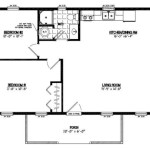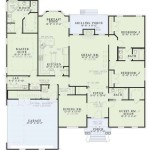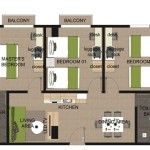Floor Plan Dimensions Explained: A Guide to Understanding Architectural Drawings
Floor plans are essential architectural drawings that provide a bird's-eye view of a building's layout. They display the arrangement of rooms, walls, doors, windows, and other structural elements. Understanding the dimensions on floor plans is crucial for various reasons, including planning renovations, furniture placement, and estimating construction costs.
Linear Dimensions
Linear dimensions refer to measurements along a straight line. They are typically expressed in feet and inches (ft-in) or meters (m). On floor plans, linear dimensions indicate the length and width of rooms, hallways, and other rectangular spaces. For example, a room with linear dimensions of 12 ft-0 in x 10 ft-0 in measures 12 feet in length and 10 feet in width.
Overall Dimensions
Overall dimensions represent the total length and width of a building's footprint. They are used to calculate the building's square footage, which is an important factor in determining construction costs and property value. Overall dimensions are typically expressed as a single measurement, such as 30 ft-0 in x 40 ft-0 in.
Interior and Exterior Dimensions
Floor plans may include both interior and exterior dimensions. Interior dimensions refer to the measurements within the walls of a building, while exterior dimensions include the thickness of the walls themselves. Interior dimensions are used for planning furniture placement and calculating room sizes, while exterior dimensions are necessary for determining the overall footprint of the building.
Wall Thickness
Wall thickness is an important consideration when reading floor plans. On architectural drawings, wall thickness is typically indicated by a double line or a dashed line. The dimensions of the wall are measured from the center of the double line or the inner edge of the dashed line. Wall thickness can vary depending on the type of construction material used and the purpose of the wall.
Door and Window Dimensions
Door and window dimensions are also included on floor plans. These dimensions indicate the width and height of the openings in the walls. Door dimensions are typically expressed as a single measurement, such as 3 ft-0 in x 7 ft-0 in (width x height). Window dimensions, on the other hand, are often given as two measurements, representing the width and height of the glass pane.
Scale
Floor plans are drawn to a specific scale, which is indicated on the drawing itself. The scale determines the relationship between the size of the symbols on the plan and the actual dimensions of the building. For instance, a scale of 1/4 in = 1 ft means that one-fourth of an inch on the plan corresponds to one foot in real life.
Conclusion
Understanding the dimensions on floor plans is essential for interpreting architectural drawings and making informed decisions about building design and construction. By carefully examining linear dimensions, overall dimensions, interior and exterior dimensions, wall thickness, door and window dimensions, and scale, you can gain a comprehensive understanding of the spatial relationships within a building.

How To Read A Floor Plan With Dimensions Houseplans Blog Com

How To Properly Read Floor Plans And What Details Look For

How To Read A Floor Plan With Dimensions Houseplans Blog Com

12 Examples Of Floor Plans With Dimensions

The Ground Floor Of House Layout And Dimensions In Cm Scientific Diagram

How To Read Floor Plans 8 Key Elements A Plan Foyr

Floor Plans With Dimensions Including Examples Cedreo

How To Read A Floor Plan And Design The Perfect Home For You

How To Read Floor Plans With Dimensions A Guide

How To Read Floor Plans
Related Posts








